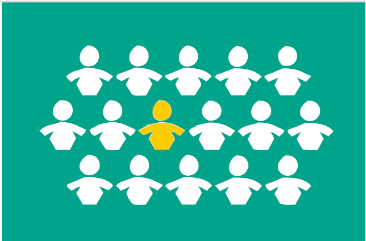Guides
Guides to involve stakeholders in your research and promote openness and collaboration
PPIE Guide
Patient and Public Involvement and Engagement in research – A „How to“ Guide for researchers
This guide is for learning why and how to meaningfully involve patients and the public in your research. In Chapter 1, you find a detailed description of what PPIE stands for, why it is necessary to get involved, and how we co-created this ‘How to’ guide together with a multi-stakeholder group consisting of researchers from multiple disciplines, citizen scientists, youth and patient advocates. In Chapter 2, you will find the main outcomes from all co-creation workshops regarding PPIE principles. This includes patient and public interaction, relevant governance structures (including budget and project oversight) and the organizational framework that facilitates PPIE activities. In chapter 3, we provide self-assessment checklists and present self-assessment PPIE tools. Chapter 4 covers suggestions on how to monitor PPIE activities, followed by additional resources such as key papers, databases or other important guides (Chapter 5).
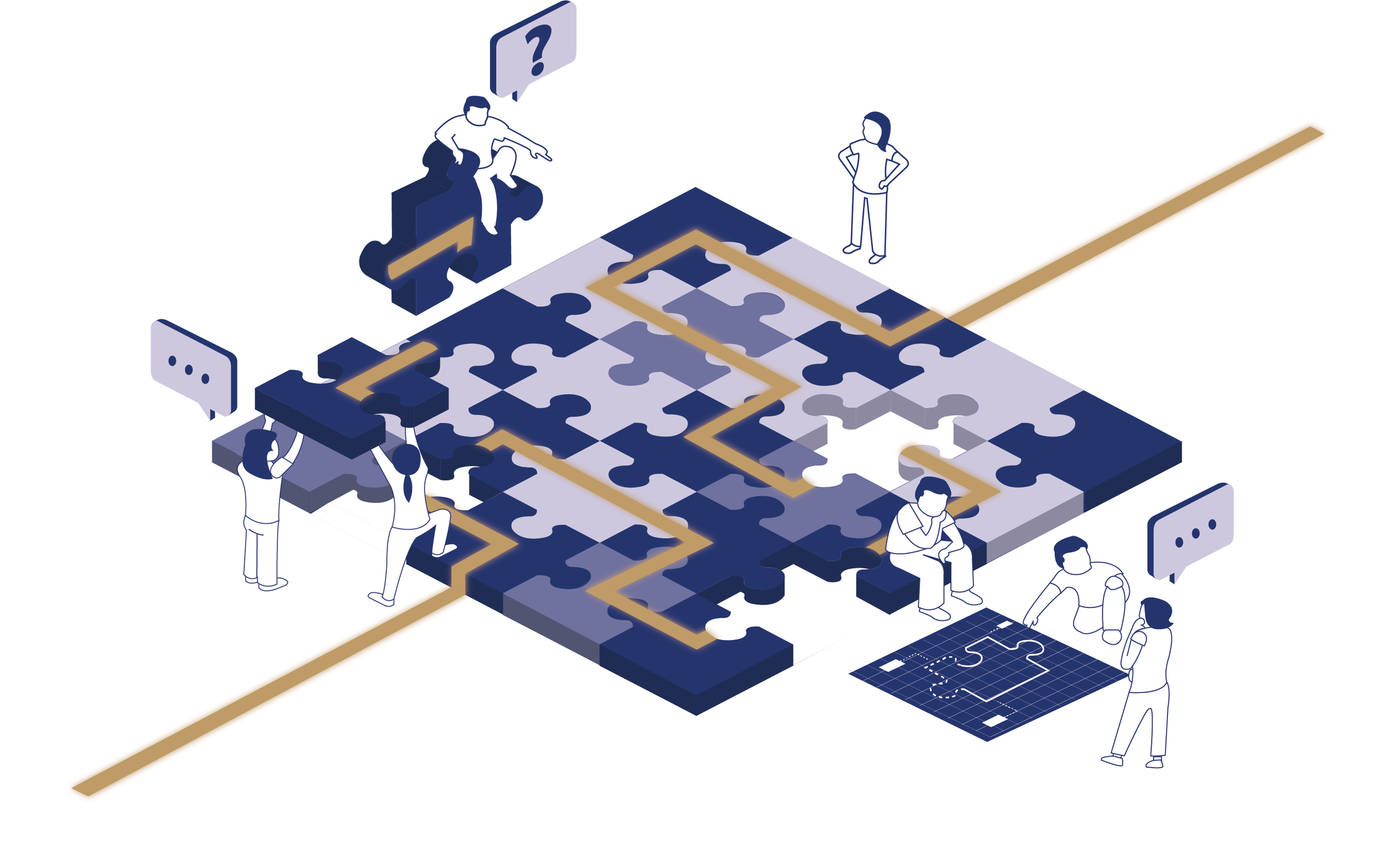
Checklist for the submission of research projects with public involvement (DE)
Public engagement and involvement in research can take place at several levels, this checklist is intended to help applicants and ethics committees to classify their public engagement and involvement activities and to reflect on the relevant ethical aspects. However, this checklist does not replace the requirements of the ethics committee to which the application is submitted.

OIS Center honorarium guidelines for research involvement
The OIS Center recommends that citizens, people affected by research (e.g., patients) and other stakeholders involved in a research project shall be compensated with an honorarium as a token of appreciation for their work. In this document, you can find honorarium guidelines recommended by the OIS Center for different forms involvement in research.
Consent Declarations
We offer templates for researchers on various ethical aspects of involving patients and members of the public in research. Here you can find templates for Consent Declarations in English and German in a long- and short-version.
A short guide on patient partnerships in rare disease research projects
This guide has been developed with the help of a working group comprising of patient representatives and research funders and has been submitted for review by independent academic researchers. Its main goal is to encourage fruitful, sustainable and enduring partnerships between scientists and patient organizations, co-leading the way for systematic patient-centered research.
innOsci – Future Skills for Openness/ A framework for promoting openness in science and business
This paper focuses on the question of which mindset, skills and tools academics in business (Open Innovation) and science (Open Science) as well as in their working environments in companies, universities and research institutions need, in order to promote a culture of openness. It sheds light on which competencies organizations can promote so that people in the above-mentioned institutions can successfully (co-) create the desired change towards more openness.
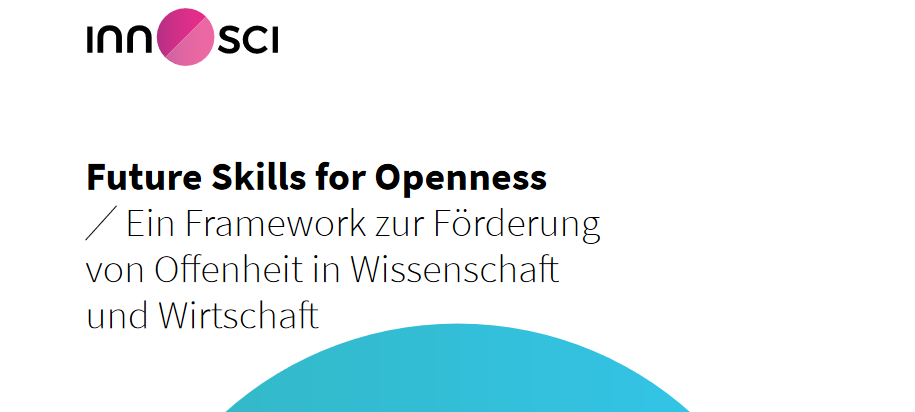
Quadruple helix collaborations in innovation
Quadruple Helix Collaborations (QHCs) is a form of collaboration in research and development between the four major sectors of society: academia, business, government, and civil society.
Our center has been a partner of the European Horizon 2020 project “RiConfigure”, which aimed at making such cross-sectoral collaborations thrive and overcoming the challenges that the actors might face by gathering practical advice on how to make these collaborations a success.
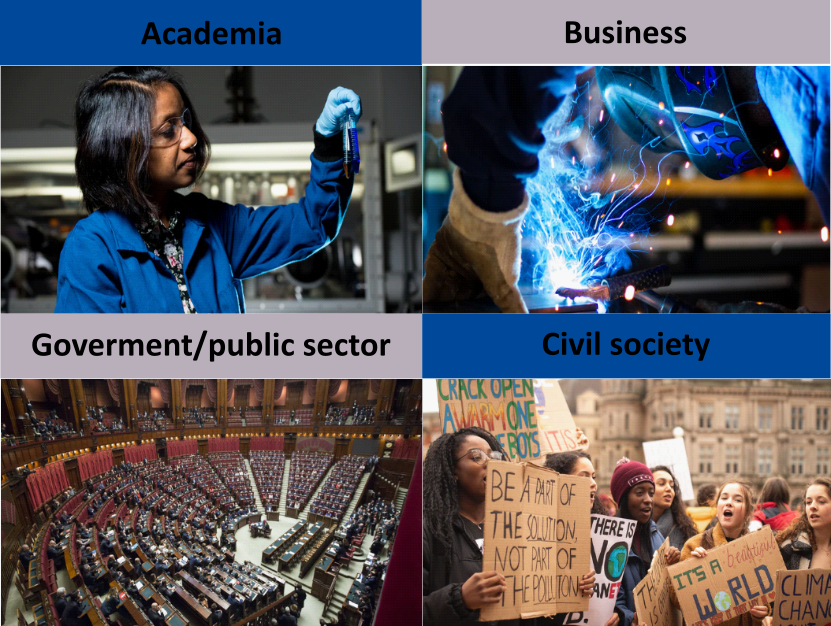
Guides from external sources
Guide for the implementation of the UNESCO Open Science Recommendation re. „Opening science to society“
This report has been collaboratively produced by members of the Community of Practice on Citizen Science and Open Science of the Citizen Science Global Partnership (CSGP). The LBG Open Innovation in Science Center also contributed to this report. It provides guidance on the implementation of the UNESCO Open Science Recommendation that fits the UNESCO Open Science Toolkit.
Access: Guidance for the implementation of the UNESCO Open Science Recommendation re. „Opening science to society“ (FINAL) | Zenodo (long version)
Guide for Engagement and Dissemination recognition payments for public contributors
The NIHR Centre for Engagement and Dissemination (CED) is committed to promoting equality, diversity and inclusion in all areas of our work. Their short Guide gives an orientation on how to reimburse public contributors.
Access: Recognition payments for public contributors (short version)
Access: Recognition payments for public contributors (long version)
A Field Guide to Public Engagement and Culture Change
„A Field Guide to Public Engagement and Culture Change“ of the Bath University is for anyone who is working to raise the profile of public engagement with research within their institution. These could be public engagement professionals, researchers with departmental responsibility for public engagement, or professionals who have public engagement as part of their broader remit within higher education institutions.
Access: Field Guide
Other guides
How to publish Patient & Public Involvement activities
GRIPP2- Form:
GRIPP2 represents the first international evidence-based, consensus-informed guidance for reporting patient and public involvement in research. GRIPP2 aims to improve the quality, transparency, and consistency of the international PPI evidence base, to ensure PPI practice is based on the best evidence.
Access:
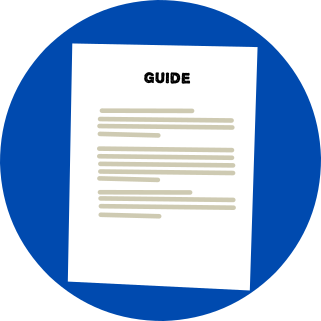
Support and contacts
Do you have questions or comments about our resources or are you looking for support on how to implement involvement activities in your research? Contact us or have a look at our support services!
In particular, you can contact Thomas Palfinger for questions on public and patient involvement in research, Christiane Grill for questions on innOsci – Future Skills for Openness, and Laura Soyer for quadruple helix collaborations.

